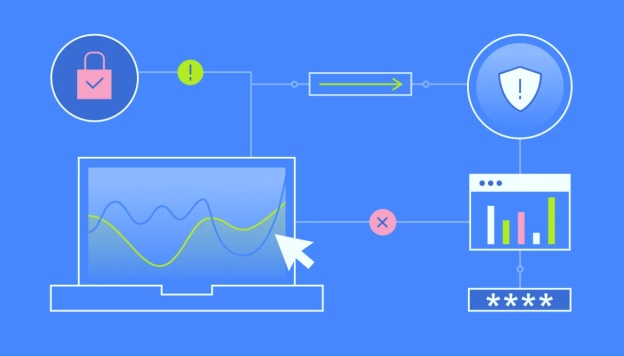A new survey reveals the best UK towns and cities to work remotely.
Over two-fifths (44%) of people in the UK now work remotely some or all of the week, according to the latest data from the Office for National Statistics. Where they live, however, has a big impact on their access to fast and reliable internet services – with many remote and hybrid workers still having to contend with the stress of poor connectivity at times.
Broadband speed and connectivity variations impact what’s the best UK towns and cities to work remotely
A new analysis of Ofcom’s Connected Nations data, by HR software provider Ciphr, has revealed significant regional variations in the connectivity available across the UK. While Hull is the city to beat – by some margin – thanks to its average (median) download speeds of 185 megabits per second (Mbps) and significant 98.2% full-fibre broadband coverage, there are numerous locations with speeds well below the UK’s average of 65.3 Mbps.
Ciphr’s broadband index ranks 100 major UK towns and cities, with a combined working age population of around 22.9 million people, against five different metrics. For each location, Ciphr compared the percentage of residential homes with access to superfast, ultrafast and full fibre connections (capable of delivering speeds of over 30 Mbps, over 100 Mbps and up to a Gigabit respectively). The area’s average (median) fixed download and upload speeds were also measured – which help ensure buffer-free virtual meetings and fast file-sharing.
Highest ranking towns in the UK for remote work
The towns and cities ranked the highest in the index for all five criteria are Hull, Belfast, Coventry, Milton Keynes, and Peterborough, with residents in these areas enjoying some of the fastest internet speeds in the UK.
After Hull, Coventry and Portsmouth are two of the best cities for accessibility, with around 97% of homes having access to ultrafast broadband. Over 90% of residents in Coventry, Milton Keynes and Belfast can also get full fibre.
Workers in Belfast, Birmingham, Bristol, Middlesbrough, Nottingham and Stockton-on-Tees benefit from typical median download speeds of 100 Mbps, although the mean average is actually over 140 Mbps for many in these areas.
Belfast and St Albans take second and third place, after Hull, for the fastest median upload speeds of 20 Mbps. Ofcom puts the UK average upload speed at around 15.5 Mbps, although 80% of the towns and cities in Ciphr’s study come in below this figure.
The worst ranking
The bottom five towns and cities in Ciphr’s index are Chichester – where just a third (34.4%) of people working from home have access to ultrafast broadband of at least 100Mbps, and the top median download speed is 47.4 Mbps – followed by Winchester, Canterbury, Caerphilly, and Gateshead.
Based solely on Ciphr’s broadband index, the top 15 UK towns and cities to work remotely are:
| Rank | Location | % of homes with access to superfast broadband | % of homes with access to ultrafast broadband | % of homes with access to full-fibre internet | Median download speed (Mbps) | Median upload speed (Mbps) | Total score (out of 5) |
| 1 | Hull | 99 | 98.2 | 98.2 | 185 | 53 | 4.99 |
| 2 | Belfast | 99.3 | 96 | 90.2 | 100 | 20 | 3.81 |
| 3 | Coventry | 98.8 | 97.1 | 95.3 | 78 | 14.6 | 3.65 |
| 4 | Milton Keynes | 99.2 | 92.9 | 91.4 | 66.4 | 18 | 3.57 |
| 5 | Peterborough | 99 | 90.7 | 87.9 | 70.5 | 13.8 | 3.46 |
| 6 | Swindon | 96.7 | 91.2 | 77.8 | 80 | 16.8 | 3.44 |
| 7 | Slough | 99.3 | 95.4 | 73 | 78 | 16.1 | 3.44 |
| 8 | Southampton | 98.8 | 96.3 | 74.7 | 72.6 | 15.2 | 3.41 |
| 9 | Derby | 99.3 | 96.2 | 68.6 | 80 | 12.2 | 3.34 |
| 10 | Leeds | 98.1 | 91.4 | 74.1 | 78.3 | 12.7 | 3.33 |
| 11 | Cardiff | 99.1 | 90.7 | 61.5 | 80 | 18.7 | 3.33 |
| 12 | Edinburgh | 98.2 | 91.1 | 68.2 | 80 | 15.1 | 3.33 |
| 13 | Cambridge | 98.9 | 94.4 | 63.8 | 80 | 15 | 3.32 |
| 14 | Bristol | 97.3 | 92.9 | 60.3 | 100 | 11.8 | 3.30 |
| 15 | Salford | 97.1 | 86.9 | 68.3 | 79.9 | 16.4 | 3.30 |
Sion Lewis, CEO of Ciphr, says: “With more people working from home than ever, it’s vital for the nation’s infrastructure that people have access to fast and reliable internet services to enable them to do so. Organisations are increasingly reliant on ensuring that their people have the right digital skills and mindset to meet the challenges of the changing workplace, and that starts at home with access to decent broadband.
“What Ciphr’s research highlights, is that while there has been significant progress since the start of the pandemic three years ago, there are still workers in many areas that can’t even access speeds of 30 Mbps. This makes working from home more stressful – or sometimes impossible – due to poor connectivity. So, there is still a long way to go to eradicate digital exclusion and inequality in the UK.”
Ciphr ranked 100 of the UK’s largest towns and cities (in terms of total population size) across five metrics – the proportion of residential premises with access to superfast broadband, the proportion of residential premises with access to ultrafast broadband, the proportion of residential premises with access to full-fibre internet, median download speed (Mbps), and median upload speed (Mbps) – to determine the best locations for working at home with fast broadband.
The full results are available to view.
More than 600 organisations use Ciphr’s integrated HR and people management solutions to help manage, retain and engage staff more effectively – while reducing the admin burden on busy HR teams.
Work-life balance is more important than pay when deciding to work from home.












